If ROTC ever crosses someone’s mind, it might conjure up the image of students in full army gear — and that’s it. Few understand what ROTC truly entails.
ROTC, or Reserve Officer Training Corps, offers a path to commission as an army officer upon graduation. It’s one of several routes to becoming a military officer, emphasizing leadership in both civilian and military spheres.
Emma Sabin, a senior in charge of fundraising and recruitment, explains that ROTC’s ultimate aim is commissioning — graduating as an officer.
“Typically, in order to become an officer, the defining factor is that you have a military-based college education,” Sabin said. “That’s what ROTC is for.”
While that sounds intimidating to many, ROTC is a lot more like a club than one might think. Sabin described freshman year — the beginning — as an introductory experience, consisting of integration into the army lifestyle and training on how to be a good cadet.
“As you work up, there are opportunities for you to assume leadership positions and actually practice some of the things that you’re learning about because the ROTC motto is ‘Leadership Excellence,’” Sabin said.
The motto is evidently ingrained into the senior class of ROTC, who lead and organize most of the training events, with some help from the Cadre — active duty Army personnel that oversee the entire program. The leadership positions that the seniors hold are called staff positions.
So what does becoming a member of ROTC entail? Nick Dowling, senior and army active, described the process as different than most. Dowling came into college without any idea of what ROTC was.
“I didn’t know about the army,” Dowling said. “I didn’t come from a military family at all. I was planning on playing college soccer. And then, at the last minute, I didn’t, and I came here, and I didn’t have a team or anything like that.”
Dowling joined ROTC because he heard they worked out, so he emailed the first person he saw on the website and asked, “Hey, can I come and work out with you guys to see what it’s like?”
Dowling ended up getting a scholarship after a year and a half and has even become battalion commander, which in club terms is similar to the president.
“I always say, if someone would have told me coming into college that I would be in the position I am today, I’d have said they were crazy,” Dowling said. “So you never know what can happen if you just keep an open mind and try new things.”
A day in the life of a cadet
For Sabin, a typical Thursday begins with physical training (PT) at 5:55 a.m., including gym workouts or rucks, which are long walks with a 35-pound bag. Following PT, Sabin joins senior staff meetings to coordinate events and attends military science class focused on leadership. After breakfast, Sabin tackles her classes. At 2 p.m., senior cadets go to their lab to practice tactical leadership exercises. And after 5 p.m., they’re done.
Despite this seemingly enormous list of responsibilities, Dowling describes involvement in ROTC as being up to the cadet. “You could come in as a cadet and just do, you know, the bare minimum stuff, which is fine — showing up to PT, your class and the lab, and that’s about it,” Dowling said.
He emphasized that while ROTC is a big time commitment, there is always time to focus on other things.
“One thing I think people think is that when you’re in ROTC, we have so much stuff, and this is all that we do,” Dowling said. “But any new cadets that come in, one of the biggest things that we emphasize is [to] get out there, join clubs, join Greek life, fraternities, sororities — whatever it might be — because we want you to be a well-rounded person. Don’t just make this the only thing that you do.”
I always say, if someone would have told me coming into college that I would be in the position I am today, I’d have said they were crazy. So you never know what can happen if you just keep an open mind and try new things.
— Nick Dowling, Class of 2024
Challenge and growth
In addition to the daily activities for ROTC, cadets participate in various events. Junior Abby Costello is in charge of organizing the Ranger Company and Mountain Man, two of ROTC’s biggest events.
“The Ranger Company is a competition that happens every October, which trains young cadets to take positions of leadership by focusing on different army skills,” Costello said.
Costello is also in charge of organizing the Mountain Man for the Wake Forest ROTC group, which is a march in honor of a first lieutenant who was killed in action in Iraq on June 16, 2007.
There are several ways to participate in this yearly event, which takes place in Gatlinburg, Tenn.: a marathon ruck, a half marathon ruck, a marathon run and a half marathon run. Costello described the event as very fulfilling.
“I didn’t think I’d be able to do 26 miles in a day with a 35-pound pack on,” Costello said. “It was a lot of fun getting to walk with some of my friends.”
Costello estimated that their group has rucked about 60 miles over the past month to month-and-a-half.
Anna Brooker, senior and army active, said such programs have greatly increased her confidence. Brooker noted that she used to have great difficulty with public speaking, but now she is very comfortable with it. Many of the things that she has done in ROTC have made the rest of her life seem much easier in comparison.
“It’s like, ‘Yeah, I’ve done this amplified, times two and way worse — in the rain before — so it’s not even that bad,’ you know?” Brooker said.
Fostering community
ROTC isn’t only about the strenuous rucks or military labs. Costello described one of her most memorable experiences, field training exercises (FTX), as a team bonding exercise.
FTX is run by Brooker and consists of training and team building. These training events are conducted for one weekend each semester, from Friday morning through Sunday afternoon. Oftentimes, ROTC members will go to a fort and do tactical exercises, small scale combat scenarios and tasks like a rappel tower, which consists of cadets making their way down a tower with a harness.
We’ve got a really great community. It’s pretty small. It’s close knit. But even within here, we have so many opportunities to be in individual leadership positions. I think everyone here works very hard to take care of each other and to better each other as a whole.
— Abby Costello, Class of 2025
Costello recalled one of these training events in particular because it was raining very hard that day.
“I remember my freshman year, at the end of our day they came up with several boxes of pizza,” Costello said. “So we had a little pizza party in this shell of a town. And so we’re sitting there, desolate in the woods, and it’s pouring rain, but everybody is in a great mood, because now you have pizza. Really a mood booster. Food after being outside for two days is life changing.”
This life-changing bond is especially evident during events like the Military Ball, hosted this year in the Magnolia Room. The Military Ball acts as a customary gathering for every battalion in the military, serving to strengthen connections with one another beyond a formal training environment.
The ball provides cadets with the opportunity to eat together and listen to the insights of seasoned military members. Events like the Military Ball truly cement the recurring sentiment expressed by members of ROTC — they’re a family.
“Better citizens and better leaders”
For those involved, ROTC is a community of integrity, a place where cadets work together to become better as individuals and as a unit. There’s an atmosphere of camaraderie that permeates wherever they are and a deep-seated sense of community and comfort coming from hours on end spent training and working together.
Brooker recommended that “everyone finds a group that pushes them out of their comfort zone and that helps them become better — better citizens and better leaders.”
Costello echoed this sentiment.
“We’ve got a really great community,” Costello said. “It’s pretty small. It’s close knit. But even within here, we have so many opportunities to be in individual leadership positions. I think everyone here works very hard to take care of each other and to better each other as a whole.”


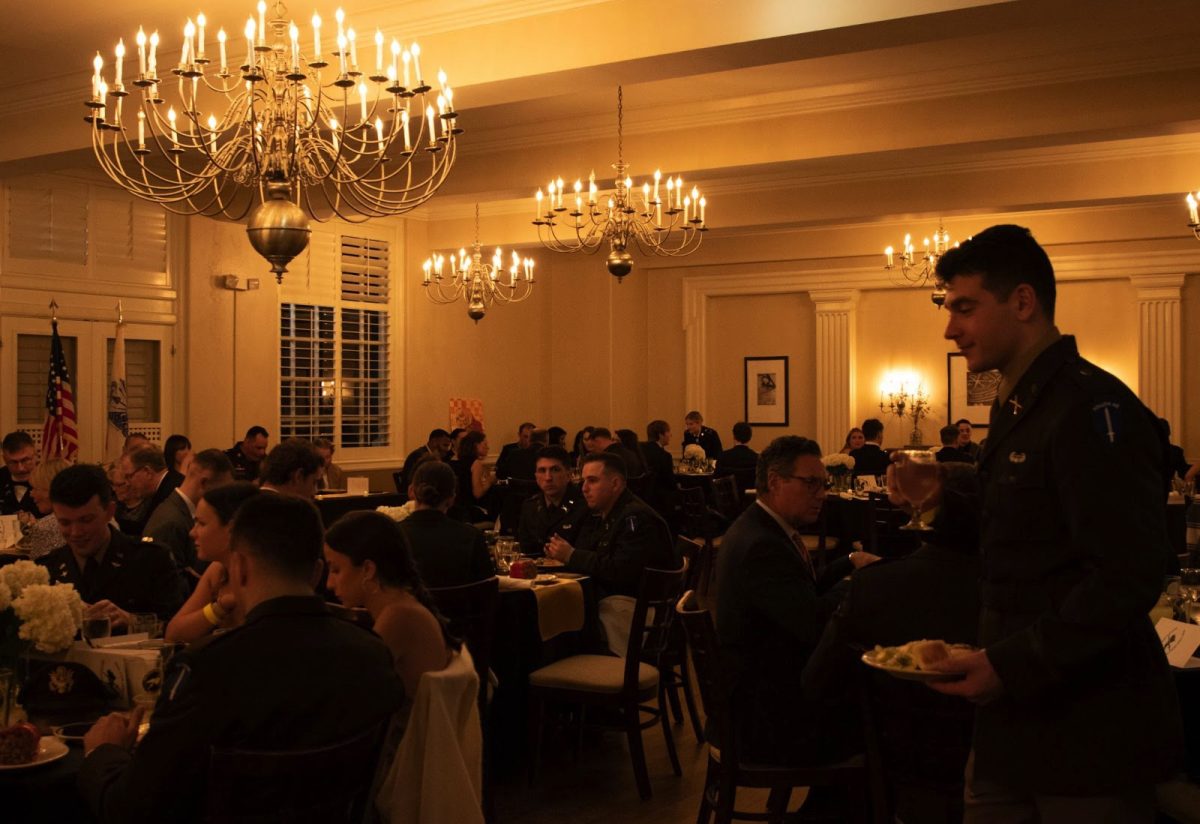
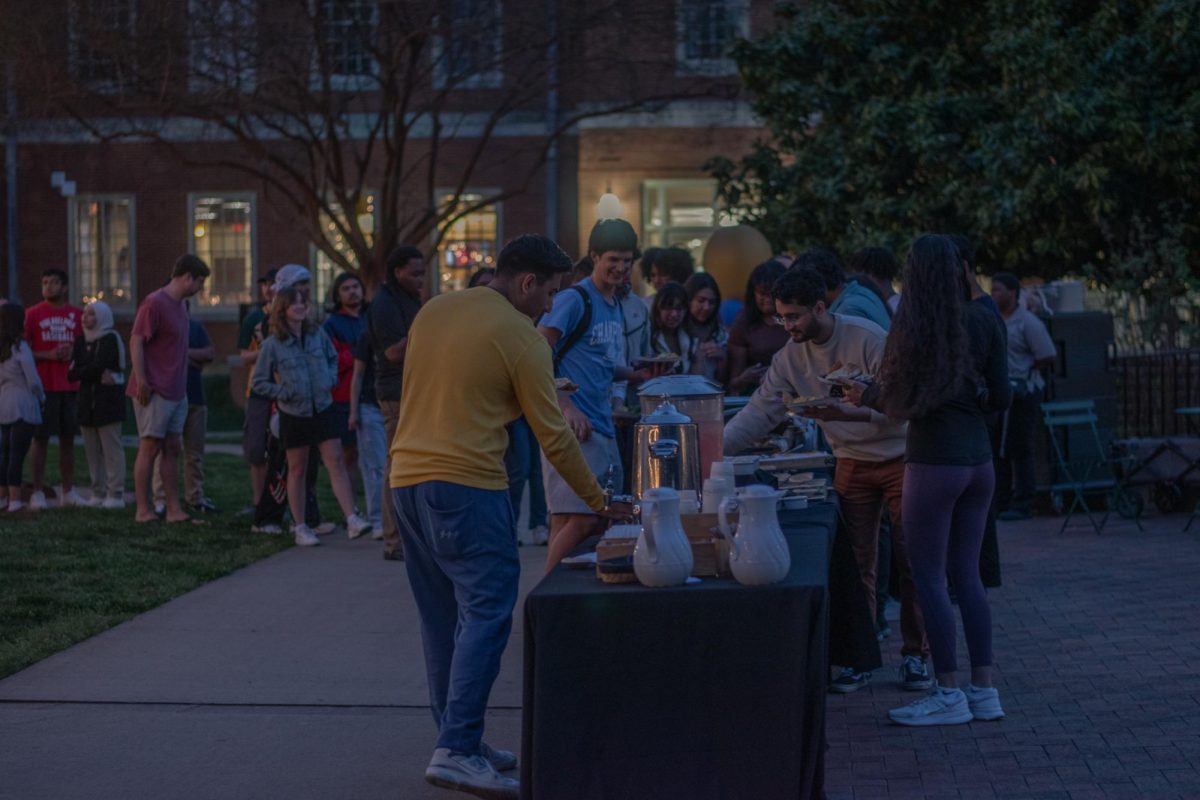
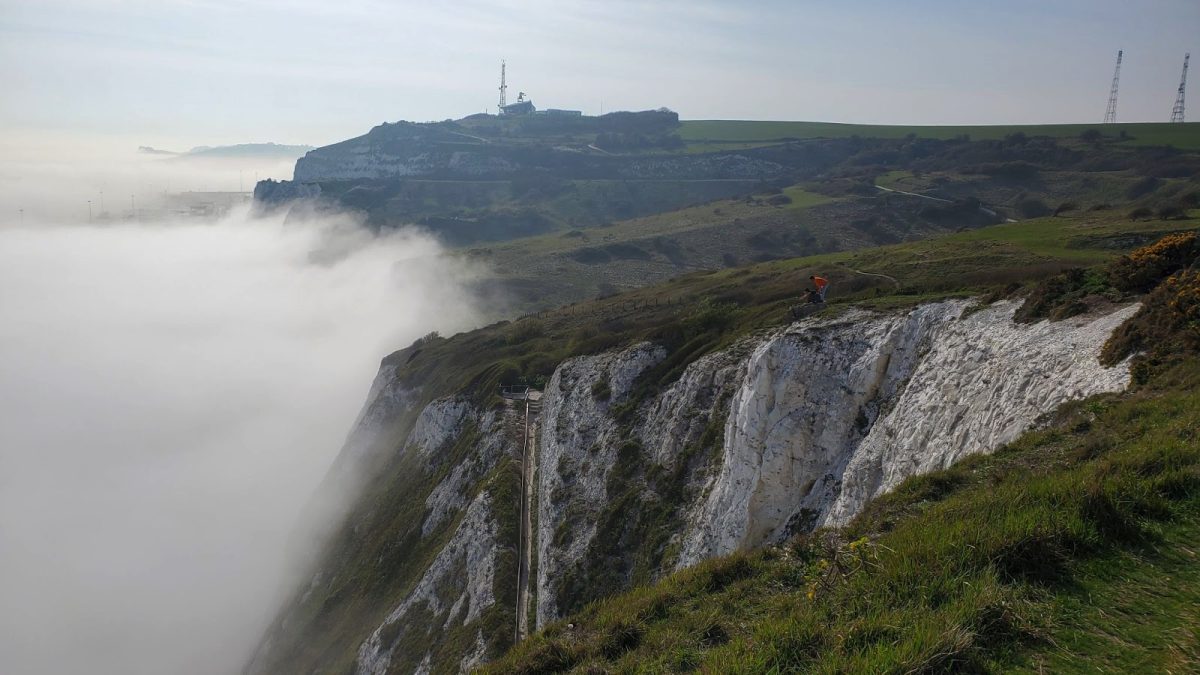
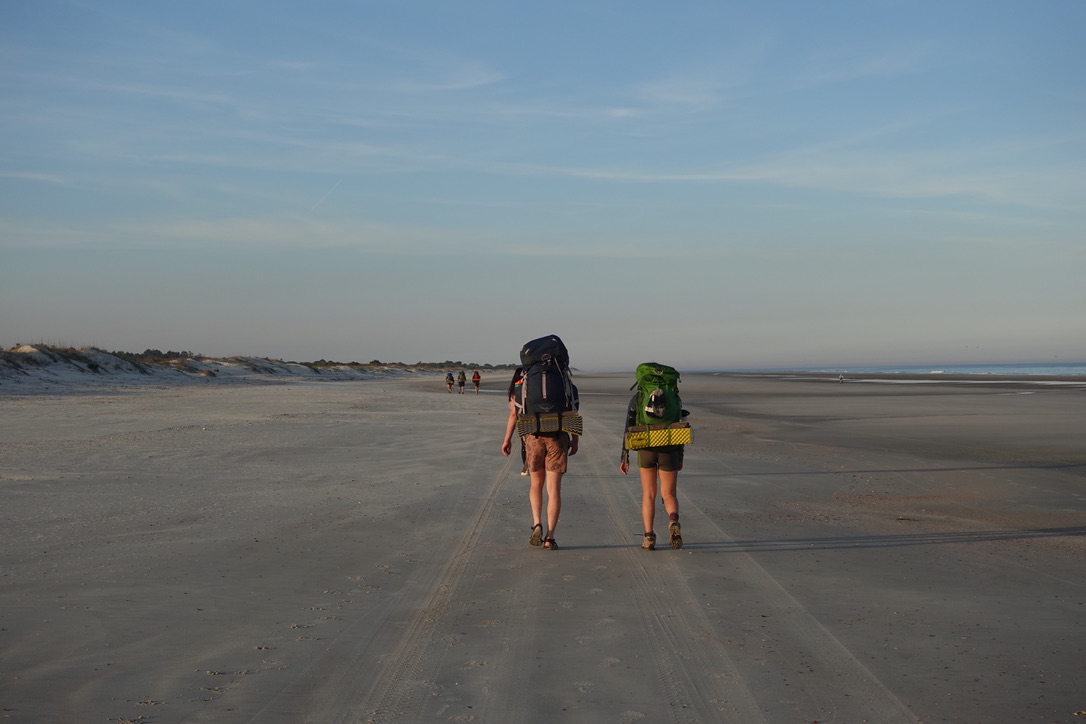
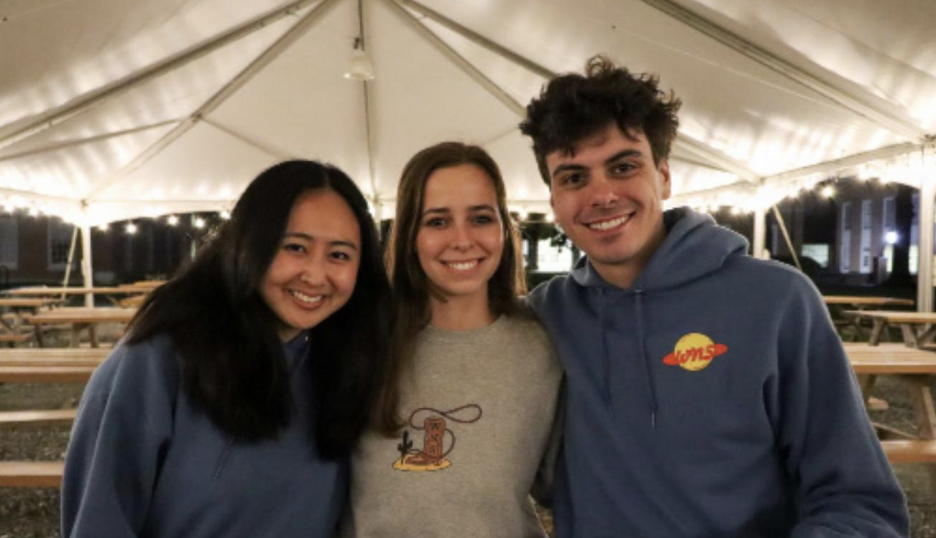
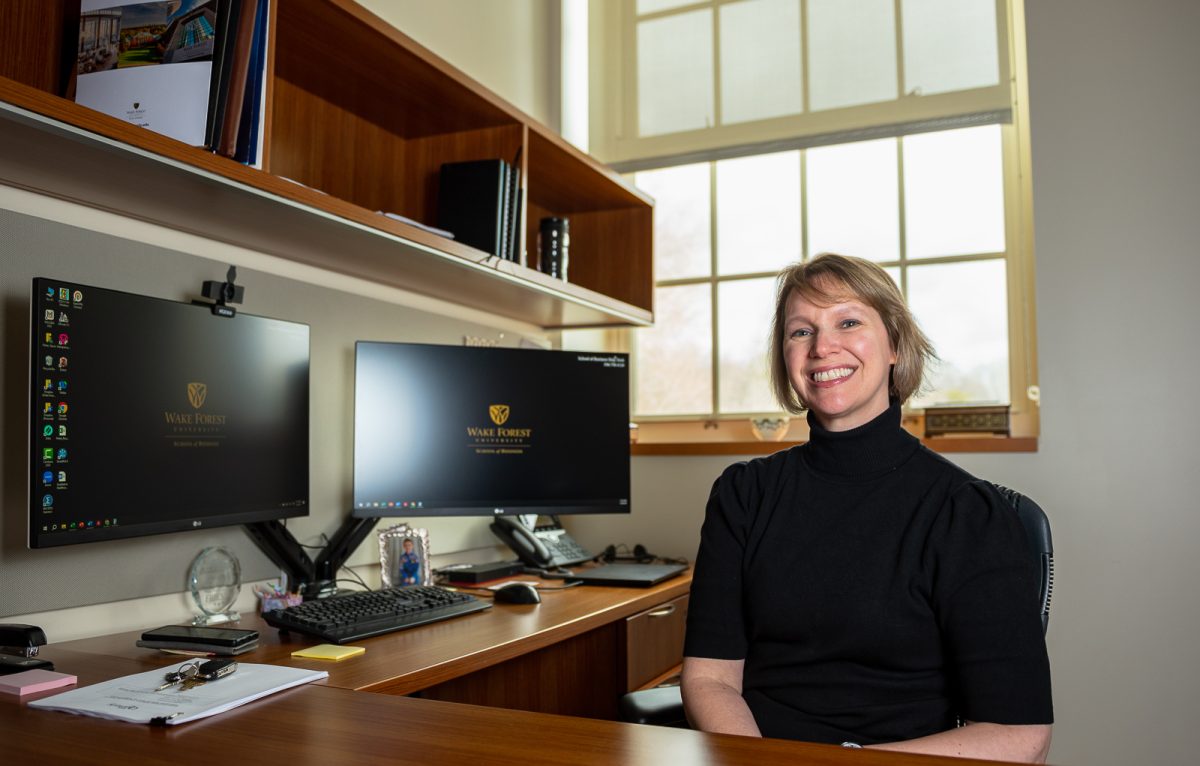

John Flach • Apr 8, 2024 at 2:47 pm
Great article! Thanks for highlighting all of the opportunities available through ROTC!!